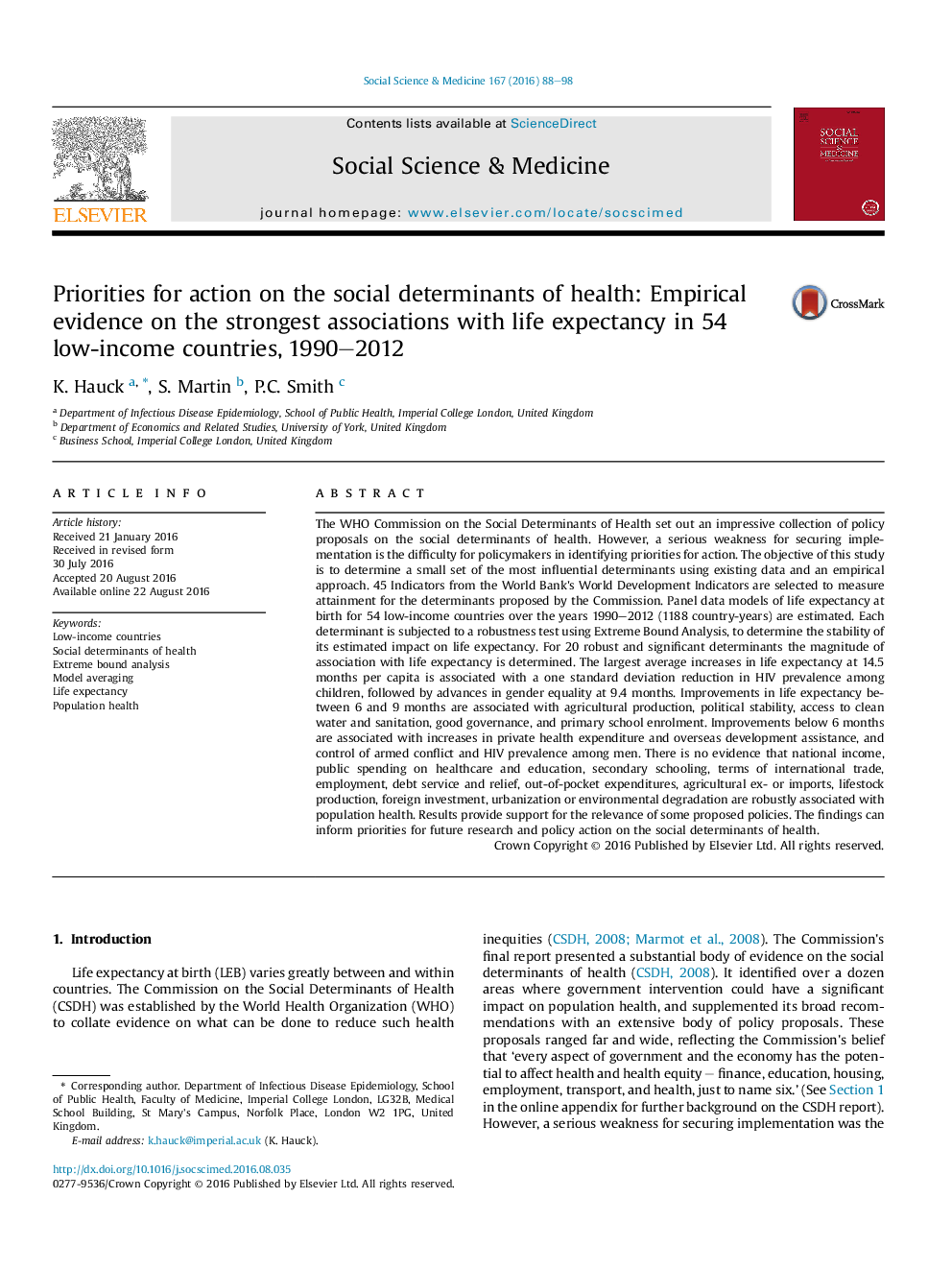| کد مقاله | کد نشریه | سال انتشار | مقاله انگلیسی | نسخه تمام متن |
|---|---|---|---|---|
| 5046950 | 1476002 | 2016 | 11 صفحه PDF | دانلود رایگان |

- Which of the many social determinants have made greatest difference?
- 20 robust determinants are established using Extreme Bound Analysis.
- Magnitude of associations with life expectancy is estimated.
- Results give guidance on priorities for research and action on public health.
The WHO Commission on the Social Determinants of Health set out an impressive collection of policy proposals on the social determinants of health. However, a serious weakness for securing implementation is the difficulty for policymakers in identifying priorities for action. The objective of this study is to determine a small set of the most influential determinants using existing data and an empirical approach. 45 Indicators from the World Bank's World Development Indicators are selected to measure attainment for the determinants proposed by the Commission. Panel data models of life expectancy at birth for 54 low-income countries over the years 1990-2012 (1188 country-years) are estimated. Each determinant is subjected to a robustness test using Extreme Bound Analysis, to determine the stability of its estimated impact on life expectancy. For 20 robust and significant determinants the magnitude of association with life expectancy is determined. The largest average increases in life expectancy at 14.5 months per capita is associated with a one standard deviation reduction in HIV prevalence among children, followed by advances in gender equality at 9.4 months. Improvements in life expectancy between 6 and 9 months are associated with agricultural production, political stability, access to clean water and sanitation, good governance, and primary school enrolment. Improvements below 6 months are associated with increases in private health expenditure and overseas development assistance, and control of armed conflict and HIV prevalence among men. There is no evidence that national income, public spending on healthcare and education, secondary schooling, terms of international trade, employment, debt service and relief, out-of-pocket expenditures, agricultural ex- or imports, lifestock production, foreign investment, urbanization or environmental degradation are robustly associated with population health. Results provide support for the relevance of some proposed policies. The findings can inform priorities for future research and policy action on the social determinants of health.
Journal: Social Science & Medicine - Volume 167, October 2016, Pages 88-98